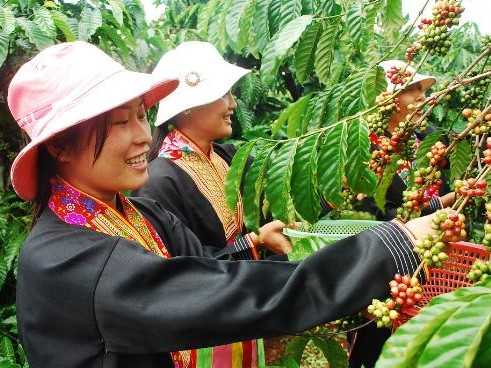DAK LAK, Vietnam – The coffee export volume from Vietnam accounts for 20 percent of the world’s market, but the export value just accounts for 2 percent, according to the Vietnam Coffee & Cocoa Association (Vicofa).
For every one kilo of coffee, Vietnam can only pocket 10 percent of the value, while the remaining value goes to foreign companies. Though Vietnam is the second-largest coffee producer in the world, it is not earning profits corresponding to its ranking.
In order to make higher profit, Vietnamese enterprises have to export processed coffee instead of coffee beans.
Even in Dak Lak, the ‘coffee metropolis’ of Vietnam, only a few companies export processed coffee instead of raw materials.
An Thai Coffee and Trung Nguyen Coffee can export 4,520 tons of instant coffee, accounting for two-thirds of export volume and 7.5 percent of total export value of the province. The other 15 coffee companies export coffee beans.
Coffee exporters in Dak Lak province said foreign roasters import coffee beans from Vietnam for processing and selling processed products under their brands.
Vietnamese coffee companies choose to export coffee beans instead of processed products as they don’t need huge investment capital to export raw materials, while they can take back investment capital soon and sell products easily.
Meanwhile, to export processed products, they will have to have huge capital and set up factories with modern technology. They will also have to struggle to find markets and spend time and money to build up brands.
Foreign companies, with powerful financial capability, are superior to Vietnamese firms in the domestic market as well.
Foreign invested enterprises in the Central Highlands pay high prices to collect coffee beans from Vietnamese farmers and merchants.
Meanwhile, Vietnamese companies, with limited financial capability, have to scramble for materials to compete with foreign businesses.
The price for 1 kilo of roasted Da Lat coffee at Starbucks stores is nearly $50, according to some local newspapers.


















